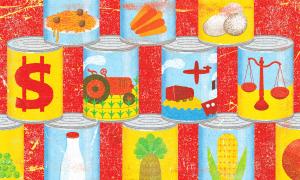Focus on Equity for Juneteenth and Beyond
Despite attempts to quickly commercialize the recognition of Juneteenth as a national holiday in the United States, this celebration highlights the importance of honest history and the relevance of the past in the struggles of the present. These LFJ resources can help unpack the complex history of this observance that originated in Texas—including the need for intervention from the federal government and efforts toward obscuring what actually took place.
- Juneteenth Observances Promote ‘Absolute Equality’
- Teaching Juneteenth
- Recovering and Teaching Local History

